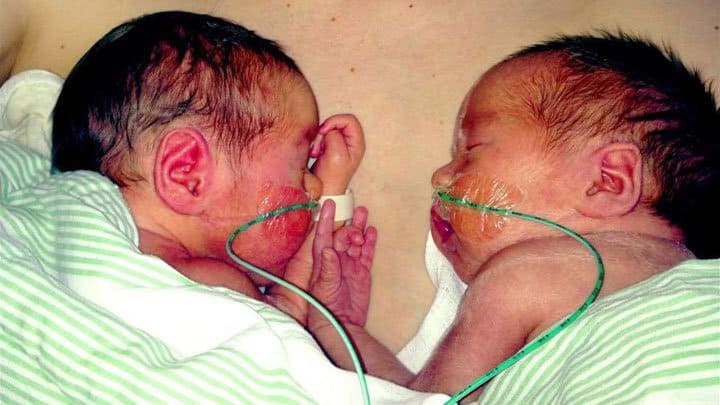Study Explores Outcome For Twins With Spontaneous TAPS
A Korean study* explores how twins diagnosed with Twin Anemia Polycythemia Sequence (TAPS) are doing after they’ve been born. TAPS is the name of a rare condition that can only affect identical twins who share a placenta (monochorionic twins). An imbalance of red blood cells between the twins develop. It gradually becomes highly discordant. This makes the donor baby anemic, whereas the recipient baby produces thick blood, called polycythemia. The condition can be life threatening for both babies. TAPS can occur spontaneously or as a result of having had laser surgery for Twin to Twin Transfusion Syndrome (TTTS).
*The study was published in Ultrasound in Obstetrics & Gynecology in September 2017.
Risk of brain lesions not higher
The researchers wanted to examine how twins diagnosed with spontaneous TAPS were doing after they were born. They wanted to look at whether or not they had neurological problems. 9 cases of women with spontaneous TAPS were included in the study. They were compared with a control group of monochorionic twins who were also born preterm. They had the same gestational age at delivery as the twins diagnosed with TAPS. The researchers found that there weren’t any significant differences between the two groups. The risk of brain lesions and long term neurological developmental problems at two years old were not different between the two groups.
Please note that MCA Doppler assessments are an important part of assessing fetal cardiovascular distress, fetal anemia or fetal hypoxia (low levels of oxygen in the fetus).
About-twins.com encourages expectant mothers to get regular check-up’s and be monitored for complications in relation to monochorionic pregnancies.














